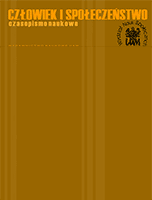Dilthey und die anthropologische Wende der Philosophie
Dilthey and the Anthropological Turn of Philosophy
Author(s): Andrzej PrzyłębskiSubject(s): Philosophy
Published by: Uniwersytet Adama Mickiewicza
Summary/Abstract: Wilhelm Dilthey (1833-1911) is known as the main representative of the so-called philosophy of life. His second important achievement was the hermeneutical theory of human sciences. The present article is an attempt at evaluating his research on the spiritual phenomenon which can be called an ‘anthropological turn of philosophy’ and which took place in the third decade of the 19th century (Scheler, Plessner, Cassirer, Heidegger, Gehlen). I explore the main categories of Dilthey’s thinking about human existence in the cultural and historical world such as sense, meaning, aims, values, etc. and try to disarm the seeming contradiction between man’s historicity (“What man is, only history tells”) and the apriority of three main, temporally conditioned dimensions of man’s life: cognitions (connected with the past), emotions (linked to the present) and volitions (directed to the future) that are similar and main spiritual faculties.
Journal: Człowiek i Społeczeństwo
- Issue Year: 2012
- Issue No: 34
- Page Range: 209-219
- Page Count: 11
- Language: German

